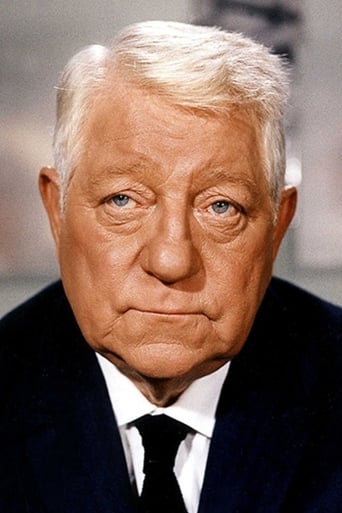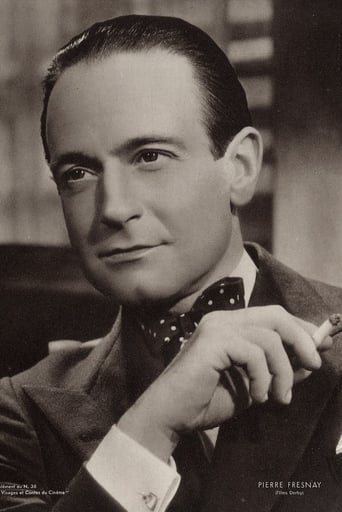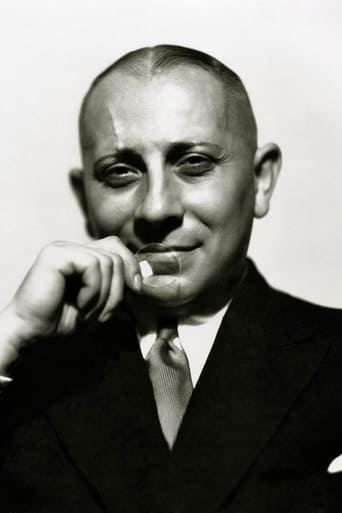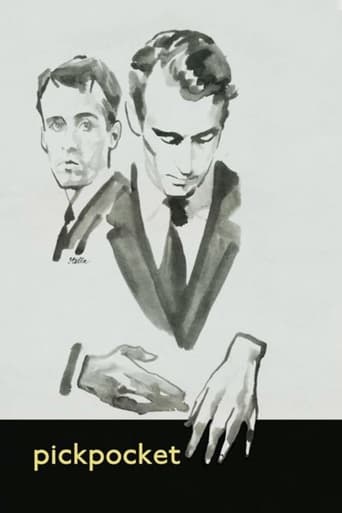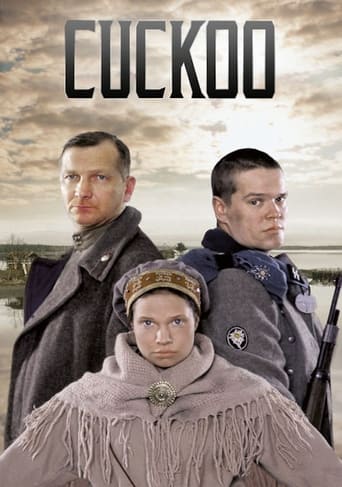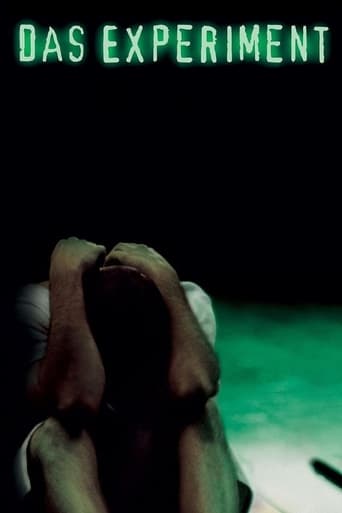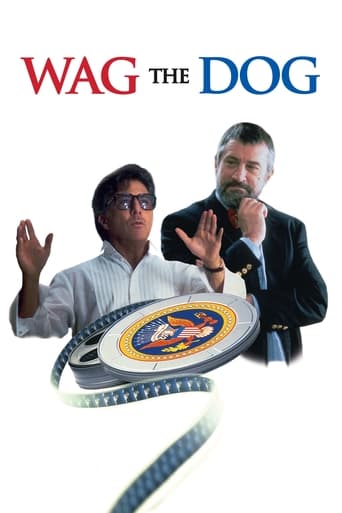
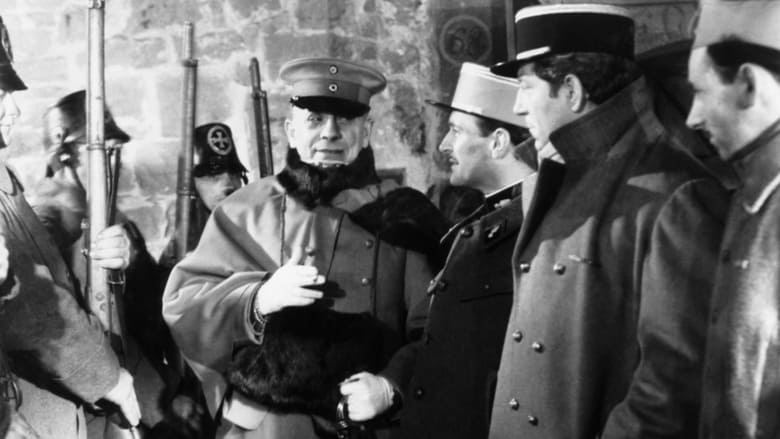
Grand Illusion (1937)
A group of French soldiers, including the patrician Captain de Boeldieu and the working-class Lieutenant Maréchal, grapple with their own class differences after being captured and held in a World War I German prison camp. When the men are transferred to a high-security fortress, they must concoct a plan to escape beneath the watchful eye of aristocratic German officer von Rauffenstein, who has formed an unexpected bond with de Boeldieu.
Watch Trailer
Cast


Similar titles
Reviews
Great Film overall
A Masterpiece!
Although it has its amusing moments, in eneral the plot does not convince.
Although I seem to have had higher expectations than I thought, the movie is super entertaining.
LA GRANDE ILLUSION is one of the biggest accomplishment of French and world cinema. Anti-war theme is shown in a rather strange way. Senselessness of war is the essence. At a frivolous (human) and non-violent way emerged the war illusion. Human relations during the war, the loss of any meaning and value. This is a strange story about human relationships in a time of war.Prisoners of war camps. The camps in the war could be called hell on Earth. Here are just illusions. Renoir gives us a work of art that explores the depth and complexity of human relationships. One difficult and undesirable topics is presented with a lot of modesty and charm.In the film's social status is reduced to a minimum. The soldiers are essential and a little crazy. The relationship between prisoners and soldiers is almost friendly. Full of patience and respect. War is man's ultimate folly, for it brings him losses that are permanent, and victories that are pyrrhic and short lived.Scenography and acting are excellent. Watch Gabin (Lieutenant Maréchal) and Fresnay (Captain de Boeldieu) is a real pleasure. Erich von Stroheim (Captain - Major von Rauffenstein) is quite realistic figure and around him is spinning an illusion and absurdity of everyday life. Dita Parlo as Elsa appears briefly but leaves a strong impression. There are so many different and important characters who acting with a lot of freedom and creativity. Renoir reveals every aspect of his characters.This film is full of humanism, heroism, drama and adventure. All of these features are mixed in a war illusion in which is hard to believe, but it's very nice to see and feel. A little comedy of manners is welcome, romance also.Whether it is or not, the film tells us that men can act nobly, even when they are a part of something that is not itself noble. Mankind must rise from ruin. Unfortunately, to this day all is one La Grande Illusion.
I really, truly enjoyed this film. I wasn't expecting to because war-related movies aren't particularly my thing, but this isn't really about war. To me, it was a film about humanity, and it delivered its message with such grace. The story was solid and made for a really pleasant experience. I caught myself wondering how the heck the filmmaker made me want them to escape almost as much as they wanted it, and that's awesome.The acting was excellent. It seemed effortless for them to be these characters, and I've never felt that before when watching a movie. The main character was my favorite, for sure. Handsome in a non-traditional way, and there was something about him that was so mysterious- a combination of cool, tough, fearless, but sensitive. The characters were so genuine. Great performances all around. The respect with which they all treated one another was beautiful, despite the captives/captors dynamic. Not a romance movie but the minor bit of love was surprisingly touching. Not sudden, "I can't live without you!" love like I've seen in a lot of old classics, but gradual, sweet, believable love.It was a simple, tragic, sweet story. No ground-breaking cinematography, but definitely beautiful. Great establishing shots. The director did a great job of giving the viewer an understanding of the time, the setting, how things worked in the camp, everything. Really smooth and nice panning shots. It's not an especially fast, thrilling story, but it definitely doesn't lag or make you look at the clock either. I enjoyed it the whole way through. No wasting time with unnecessary or redundant scenes or dialog.I loved this movie, honestly. I definitely recommend it and I'm happy to have it in my collection.9/10 Bye love you
There are certain films that, due to their strong reputation and historical significance, are supposedly beyond criticism. Citizen Kane, Seven Samurai, 2001, The Godfather and many more are examples of films that despite not being necessarily perfect, many say that they are beyond criticism, and that if you do criticism them, you must discuss what masterpieces they are first. One of those films is Grand Illusion. Considered to be one of the first prison escape movies ever made, the film is meant to be one of the best ever made, for not only being the grand-daddy of prison escape films, but for having great characters, an engaging story and a strong anti-war message laying underneath its skin. However, while it does have many positive attributes, Grand Illusion isn't the masterpiece everyone believes it to be, due to poor narrative and being very overlong.The plot is that after being shot down during an aerial battle, a group of French soldiers are sent to a German prison. Here, they decide to escape, and use many cunning plans in order to do so. That's really all of the story there is here, and while its simple nature makes it seem impossible to screw up, the story is poorly told here. This is due to how there isn't much of a story throughout much of the film, and many scenes consist of characters talking about things not story related or utterly pointless scenes as well (i.e. a scene where the prisoners display a show to the Germans) that should have hit the cutting room floor. Because of this, the film feels very baggy and overlong as a result. It also doesn't help that the character development is quite inconsistent. While I understand that the film is essentially an ensemble piece, there are too many characters for the film to juggle, leading to few characters we care about or are interested in, and many we couldn't care less about. It also doesn't help that there isn't much threat from the villain characters, as they act very friendly towards the heroes and in a later scene when a protagonist dies, the villain tends to his need. Sure, the scene that this leads to is a wonderful moment (something the film sadly has too little of) and it does represent director Jean Renoir's pacifist views but it fails to create any tension or conflict within the story, and if the audience doesn't care about the events on screen, then what's the point of watching?The film isn't a complete disaster though. The film is clearly well made , some of the characters are at least interesting and the cast are excellent, with Jean Gabin, Marcel Dalio & Erich von Stroheim in particular giving standout performances. It is also at least an entertaining experience for the most part, and it is also an interesting watch, as it is compelling to see one of the first prison escape films and to see how it influenced later prison escape films as a whole.It is because of this that while Grand Illusion isn't a complete failure, it is very flawed and it hasn't aged very well, due to its overlong length, barrage of pointless material and lacking any tension or suspense for the most part. However, there are some great moments here and there and the acting is fantastic overall. So in conclusion, what you have is a mediocre film that despite its iconic status is quite problematic. However, it is worth checking out to see one of the forerunners of the prison escape genre, and is occasionally brilliant here and there. If you must get it, get the Criterion version above all others, as it goes into great detail about the film, it's history, cast biographies and Nazi ban. To be honest, the edition gives the film a better treatment than it perhaps deserves.
Don't get me wrong, I love this film, but I don't see it being one of the greatest films of all time. It was pretty hard to watch and get through. It's not the fact that it was made in 1937 by French director Jean Renoir for a French speaking audience, and I can't relate to the film due to its aged and language. It's the fact that the film's themes put me in odds and the editing was just horrible. It's not the director or the editor at the time fault. It was World War 2's fault. For many years, the original nitrate film negative was thought to have been lost in an Allied air raid in 1942. Then, it was revealed that the original negative had been shipped to Berlin during the Nazis control of France due to the ban of the film during WWII. Then in Cold War, Berlin in 1945, the film was controlled by the Soviet's zone and consequently shipped along with many other films to Moscow. The negative was returned to France in the 1960s, but sat unidentified in storage for years. In the early 1990's, it was found, restored, and re-released in the United States in 1999. Overall, watching the badly damage film getting restored was a blessing, but it didn't make the film any better. Probably in pre-World War 2, the film was pretty amazing, but after World War 2, this film feels like a long lost puzzle just put together, with a few of the original pieces missing. It just doesn't have that same grandeur. La Grande Illusion is about a small group of French officers who are captured during World War I and are plotting an escape from a German prison camp. The title of the film comes from the book, The Great Illusion by British economist Norman Angell, which argued that war was futile and pointless. One thing, I do love about this movie is that there is no all-good and all-bad type characters in this film. The Germans were portrayed in a mostly positive light, and not like negative evil madmen like other war films do. Elsa (Dita Parlo) had a very powerful scene about talking about how big the table is, now. It really hit you, when you see how the toll of the war has cause this woman, so much pain. Erich von Stroheim as Captain von Raufeenstein, the warden of the prison had great acting. You can tell through his acting that the character felt pain, not only because of what happen to his body, but also to what is happening in the world. The French characters like aristocratic Captain De Boeldieu (Pierre Fresnay), working-class Lieutenant Maréchal (Jean Gabin) and Wealthy Jew, Rosenthal (Marcel Dalio) were all great in their roles. The film was generously humanistic to its character of various nationalities. Still, the movie has this odd tell rather than show moments. There is a scene in the beginning, where De Boeldieu and Marechal are going to do an air reconnaissance before captured, and a minute later, they are sitting down with Captain von Rauffenstein for dinner, captured. Where is the scene where they get shot down? They talk about it, but we, the audience don't see it. It was a bad jump cut. Even in the meal scene, the music cuts off pretty oddly to show people do die in this war, as symbolism by the funeral wreath, but still it's awkwardly cut. There are hundreds of badly made cuts in this film. Then, there was a vaudeville-type performance that was pretty weird, that remind me of 1963's Great Escape and 1953's Stalag 17 type humor. I do like the 'LA Marseillaise' scene that remind me of 1942's Casablanca. Still, most of the film felt like watching Hogan Heroes, then a real life movie about prison camps. The different between Great Escape, Stalag 17 and this movie is that this movie fails to make the prisoner-of-war camp look a place, you want to escape. Yes, the guards here were kinda mean, but in no ways, brutal like other two films. The prisoners were living in a castle, no less, better off, then the soldiers living in the trenches at the time. The film loves to say that there is a language barrier between the characters, but throughout the film, the characters understood each other more than I did, watching. The movies go quickly with the French, German, Russian and English dialogue, it does get confusing. The English seem out of place. There is a scene where Boeldieu and Von Rauffenstein spoke English for some odd reason. When did this English speaking came from in the film? I don't know how Maréchal is unable to pass word of the tunnel to an incoming British prisoner, when Boeldieu speak English. Boeldieu and von Rauffenstein, are aristocrats represented as cosmopolitan men, educated in many cultures and conversant in several languages. In true life actor Erich von Stroheim didn't speak a word of German. The film would be easier for the audience to understand if they stick with just French. Indeed, watch the film with sub-titles. You need them. I do like the message that critique the romantic idealization of duty, by showing how the aristocrat old order of European civilization has died in this war. I love the symbolism of the flower in the prison. I do like how the movie fights against the anti-Jewish campaign enacted by Adolf Hitler's government at the time, by making Rosenthal looks like a good man. Overall, this film does one thing right, it shows a realistic interpretation of the relationships of soldiers fighting a politician's war. That is why it's one of the great movies of all time.


